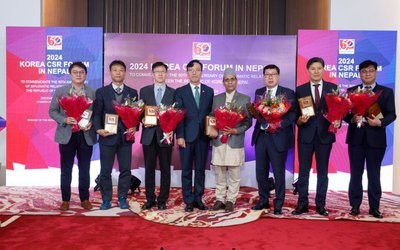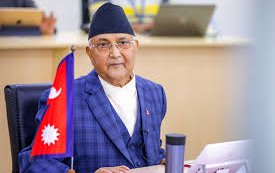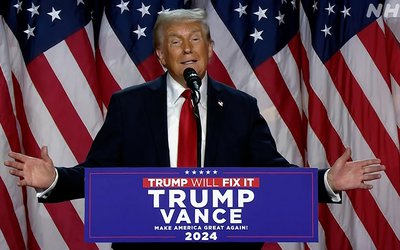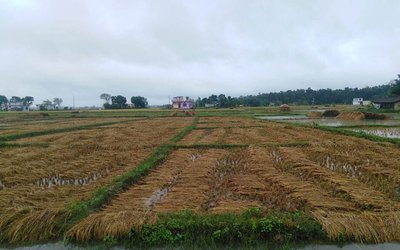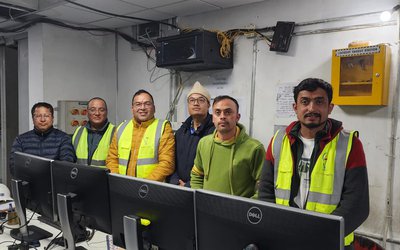Political situation of Nepal has not improved despite repeated promises made by top leaders of this country that they would do everything possible to conclude peace process and prepare new constitution. The dispute resolution committee of CA has not been able to make any progress on major disputed issues, which has compelled leaders to revise CA’s calendar of operation time and again. Bhattari led government is continuously suffering setback in that major decisions made by it have to be taken back in the face of growing resentment by people. Some examples in the case are government’s decision seeking to legalize Maoist’s property deals carried out during the conflict period, decision to restrict information of public importance and decision to hike prices of petroleum products. Strong protest on the property tissue from the opposition parties that have stalled the House, from journalist on the information issue and forceful demonstration by students against petroleum price hike has left the current dispensation with no choice but to reconsider its decisions made without proper homework. In the mean while, the apex court of this country has stayed several controversial decisions of the government. Petroleum prices have been rolled back a bit and Dr. Bhattari has indicated that restriction on information will be lifted and decision on property dealings could be withdrawn. He has shown unprecedented flexibility in withdrawing decisions made by his cabinet some of whose members do not hesitate a bit in disassociating themselves from the collectively made decisions. The born sick State Restructuring Commission has completed its assignment creating confusion and problems more than anything else. Anyway, not much was expected of the badly divided Commission whose members were chosen as per the quota allocated to different parties. Notwithstanding these deficiencies in managing state affairs and lack of desired progress on the political front, one can find some semblance of positive progress in certain areas to derive solace from. The departing process of some seven thousand Maoist combatant has begun and Prime Minister is reported to have instructed Nepal Army to make necessary arrangements to integrate six thousand five hundred combatants into it Hope the disgruntlement of disqualified fighters and YCL men demanding parity with Maoist combatants does not endanger peace process. Further, after the party’s central committee meeting that ended on fifteenth January, Maoist trios are seen sharing common platforms and heard airing not so divergent views. Not so disappointing is the situation in NC where the two leaders (Koirala and Deuba) have decided to come together after intense work in their respective groups. Hope the solution of the problems existing in NC ever since the election of Koirala as its president some two years ago is found. Equally encouraging is to see Khanal and Oli, chairman and top leader respectively of UML party, together. Whatever could be the reason behind the recent togetherness of senior leaders of our top parties, people are happy about it because inter and intra party feud has already done immense harm to the country and the economy.
Looking at the pitiable supply situation of necessities such as drinking water, electricity and petroleum products, and this scribe has written and spoken on different occasions urging those at the helm to do something meaningful to ease the situation. The situation, however, is deteriorating day by day. Acute shortage of Petroleum products, even after substantial price hike, has irritated everyone, students to housewives. The poor manageability of the current dispensation led to interception by locals of vehicles carrying cooking gas. Our rulers should be happy that furious students have withdrawn their protest programs after some roll back in prices and promise that 33 percent concession will be granted to poor, students and farmers on kerosene and cooking gas. However, in the absence of a readily available formal classification of some eg. the poor one is tempted to question the implementability of the scheme. Supply and pricing of this political commodity needs to be examined in the context of emerging international scenario as well. Oil supply on the global market is likely to decrease as a result of embargo imposed on Iran, third largest exporter of oil, by US, which is likely to be followed by EU and other allies of it all over the world. China may continue to buy about 10 percent of its requirements from Iran but is not likely to increase its purchase in a dramatic way to free oil from other sources on the global market. Further, it may not like to antagonize US much after the standoff in the UN Security Council on Syria. India will also not do anything to jeopardize its growing economic and political relationship with US. The recession in EU, expected to grow by0.3 percent in 2012, is not likely to reduce the demand for oil significantly nor will Saudi Arabia make up for the deficit resulting from the sanction. The embargo on Iran, therefore, is sure to make things more difficult for a country like Nepal whose currency is depreciating against major currencies of the world, making import dearer, and where total export earnings fall short by about 10 percent to foot the petroleum import bill. Hike in petroleum prices have been followed by increase in prices of both edibles and non edibles, which is bound to fuel inflation currently at little above 8 percent level. Choice before us is to either synchronize our prices with global market prices and ensure stable supply or keep prices artificially depressed and face a chaotic situation as the current one: long queues of vehicles waiting for their turn to get some gasoline and hundreds of people with empty cooking gas cylinders in their hands to get filled ones is a common sight on the streets of Valley these days. Administered prices have to move both ways, up and down, in tune with international prices. It may be recalled that when global prices of crude fell from $ 147 to $ 33 per barrel during recession some years ago, consumers here did not benefit much because there was no corresponding slash in prices here. An integrated approach will have to be taken to solve the problem, which probably may require coordinated efforts of different government agencies to make funds available and do away with much called for tariff on oil and to check leakages and rampant corruption. Some progress on these fronts could go a long way in satisfying the agitating consumers who desperately want easy availability of petroleum products more than anything else. This is the right time to confront the problem in an integrated manner if the idea at all is to stop the recurrence of the present situation characterized by high price and scarcity of the commodity in question.
Dr. Rawal is CA Member and Former Governor of NRB
- SWISS SUPPORT: Construction Of A Trekking Trail In Koshi
- Dec 19, 2024
- PM OLI'S VISIT TO CHINA: BRI Agreement
- Dec 16, 2024
- RASUWAGADHI AND SANJEN: Begin Generation
- Dec 03, 2024
- NEPAL, INDIA ELECTRICITY TRADE Nepal's Advantage
- Dec 02, 2024
- PM Oli'S VISIT TO CHINA: Nepal's Dilemma
- Dec 01, 2024


